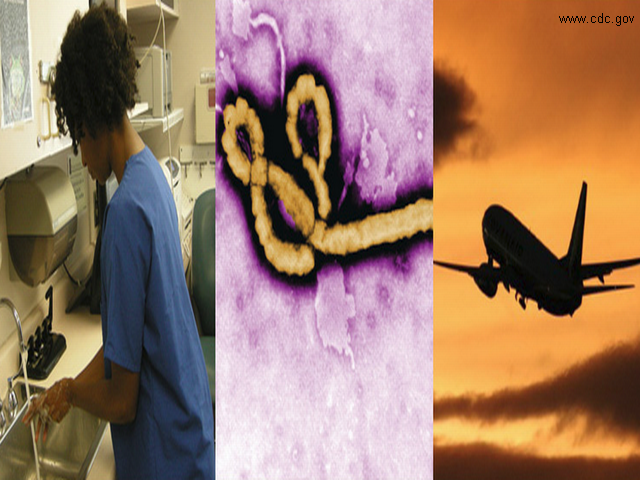Ebola, a global threat
The worrying spread of Ebola has caused growing concern in Europe and the US.

Corina Cristea, 24.10.2014, 13:49
The worrying spread of Ebola has caused growing concern in Europe and the US, which are tightening security measures to contain the virus. “It is far ahead of us, it is running faster than us, and it is winning the race”, said the head of the UN Mission for Ebola, Anthony Banbury less than two weeks ago. He expects the toll, which currently numbers 9,000 cases of contamination and 4.500 deaths, to rise by December, warning that mankind will “face an entirely unprecedented situation for which we do not have a plan”. First reported in March in West Africa, the Ebola epidemic did not receive much attention from the international community in the beginning. However, after the death of a US citizen and the first case reported outside Africa, in Spain, Europe and the US started taking tougher security measures to keep the epidemic in check. Sporadic cases in Europe are inevitable, as a result of travels to and from Africa. Nonetheless, the risk for a spread of the disease in Europe is very low and can be avoided, believes the World Health Organisation representative, Jarno Habicht, who said Europe is much better prepared than Africa to cope with Ebola. European states are in permanent contact and many states, such as Britain, have carried out simulations to see how their health systems would cope.
In a resolution passed by all political groups in the European Parliament a month ago, MEPs deplored the loss of human lives and noted that, although African countries have their share of responsibility, the international community must continue to fight the epidemic because this is not just a problem of the African continent, but the entire world. MEPs called on the UN Security Council to study, together with the affected countries, the possibility of deploying civilian and military forces under UN command. Both the European Commission and individual member states have sent money and medical material to the West African countries that were affected, as well as to their neighbors. Also, the EU has created a system of medical evacuation, allowing foreign medical staff infected with the virus to be airlifted home within 48 hours and put into European hospitals. In addition, EU states such as the UK, France, Austria, and Belgium have answered the call of the Commission, providing field hospitals, ambulances, protection equipment and experts.
Doctors Without Borders have opened in Amsterdam a second training center for volunteers who wish to go to the African countries affected by Ebola, after the first one had been set up in Brussels. After a public appeal made two weeks ago, the organization managed to find only 13 doctors to match the requirements, out of the 200 who answered. It is not easy to find medical staff to go to Africa, the virus is deadly, the conditions are difficult, and the few who volunteer have to be carefully screened, as Katrien Coppens from Doctors Without Borders told the Dutch press. Experience is very important, the situation is complicated, and we need people able to make decisions on the spot, she explained. At the center in Amsterdam, doctors are trained to work in difficult conditions, without running water and electricity, added Katrien Coppens, who also said that in Sierra Leone, for instance, the temperature is 42 degrees Celsius, and volunteers have to wear their protection equipment in that sauna. People have to be prepared for everything.
Meeting in Strasbourg, EU foreign ministers said that the Ebola epidemic was a real crisis, which has to be dealt with at an international level. Subsequently, the EU appointed a European coordinator for the fight against Ebola. So far, Brussels promised to earmark almost 500 million Euro to aid the countries worst affected, Liberia, Sierra Leone and Guinea. It is a substantial financial effort, but unfortunately less than sufficient. In Washington, President Barack Obama made an appeal towards his fellow citizens to refrain from panic, and told them that experts said the best way to stop the epidemic in its tracks is to act at the source, in West Africa, before it gets out of hand. Meanwhile, the WHO announced that the epidemic was eradicated in Nigeria, after 42 days without a new case. At the same time, the first person contaminated outside Africa, a Spanish nurse, is no longer in danger. In Romania, the authorities have allocated around 5.5 million Euro to set up a military field hospital near Bucharest as an evacuation point for possible victims.






























